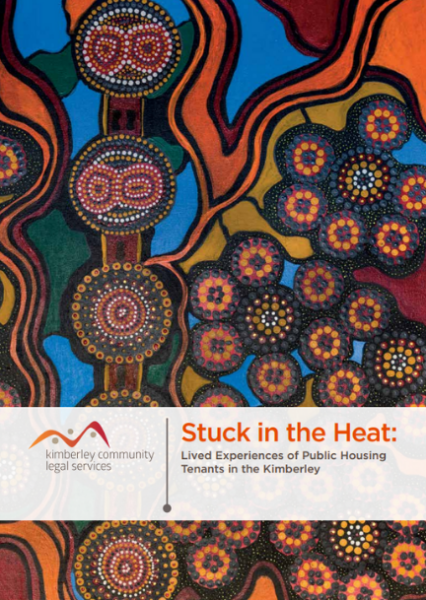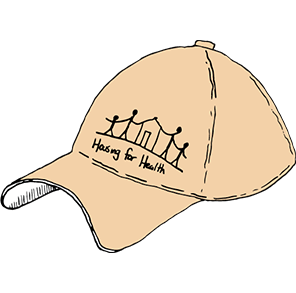REPORT: ‘Stuck in the Heat – Lived Experiences of Public Housing Tenants in the Kimberley’
The report is complied by Kimberley Community Legal Services (KCLS).
Based on research conducted with public housing tenants and service providers in the region in 2021, the report explores the lived experiences of public housing tenants in the Kimberley during periods of extreme heat.

Image – Front cover of the ‘Stuck in the Heat’ Report (source)
Key Findings
The Kimberley region is going to get hotter under current climate change projections in Western Australia, where in the coming decades the Kimberley region will experience a significant increase in days over 35 to 40 degrees. By 2090 Kununurra is expected to experience 40-degree days for most of the year.
Already, more people in Australia die in heatwaves than all other natural disaster events combined. In the three hottest climate zones in Australia, 4.5 to 9.1 percent of all deaths were associated with heat related mortality.
The extreme heat in the Kimberley is felt more by public housing tenants who face many barriers to coping with heat. Tenants struggle to keep temperatures down in poor quality housing, are under financial pressure as they try to afford air conditioners and power bills and they feel the impacts of heat stress on daily health and wellbeing. Findings include:
- Poor quality public housing, maintenance issues and crowding due to low housing stock impacts the ability of public housing tenants to effectively control the temperature and energy efficiency of their homes.
- Public housing tenants in the Kimberley may experience energy poverty due to high energy prices and the use of inefficient cooling appliances – “Aboriginal people comprise 59 percent of tenants in social housing in the region”.
- Current Housing Authority cooling policy tends to reinforce the financial disadvantage experienced by many public housing tenants in the Kimberley – “There are no minimum standards relating to cooling in the Residential Tenancies Act”.
- The effects of the heat on social wellbeing are broad and impact employment, sleep, children’s health and therefore school attendance and antisocial behaviour
Why the Report?
The need for a project on housing standards was identified by the team at KCLS, who witness the poor housing standards tenants experience and the impact it has on them, particularly during extreme heat periods. To understand the issue better, KCLS & Kimberley Jiyigas spoke to tenants in the East Kimberley during the hottest months of 2021 about their experience of living in the extreme heat.
In this report KCLS has captured many tenants lived experiences through periods of extreme heat. Healthabitat agrees that it is important to continue to collect not only the hard data on how housing is performing and the climate is changing, but also these anecdotal stories showing what the reality is like living in poor quality housing with poor quality cooling and heating systems.
See the report – here
Source – ShelterWA News









